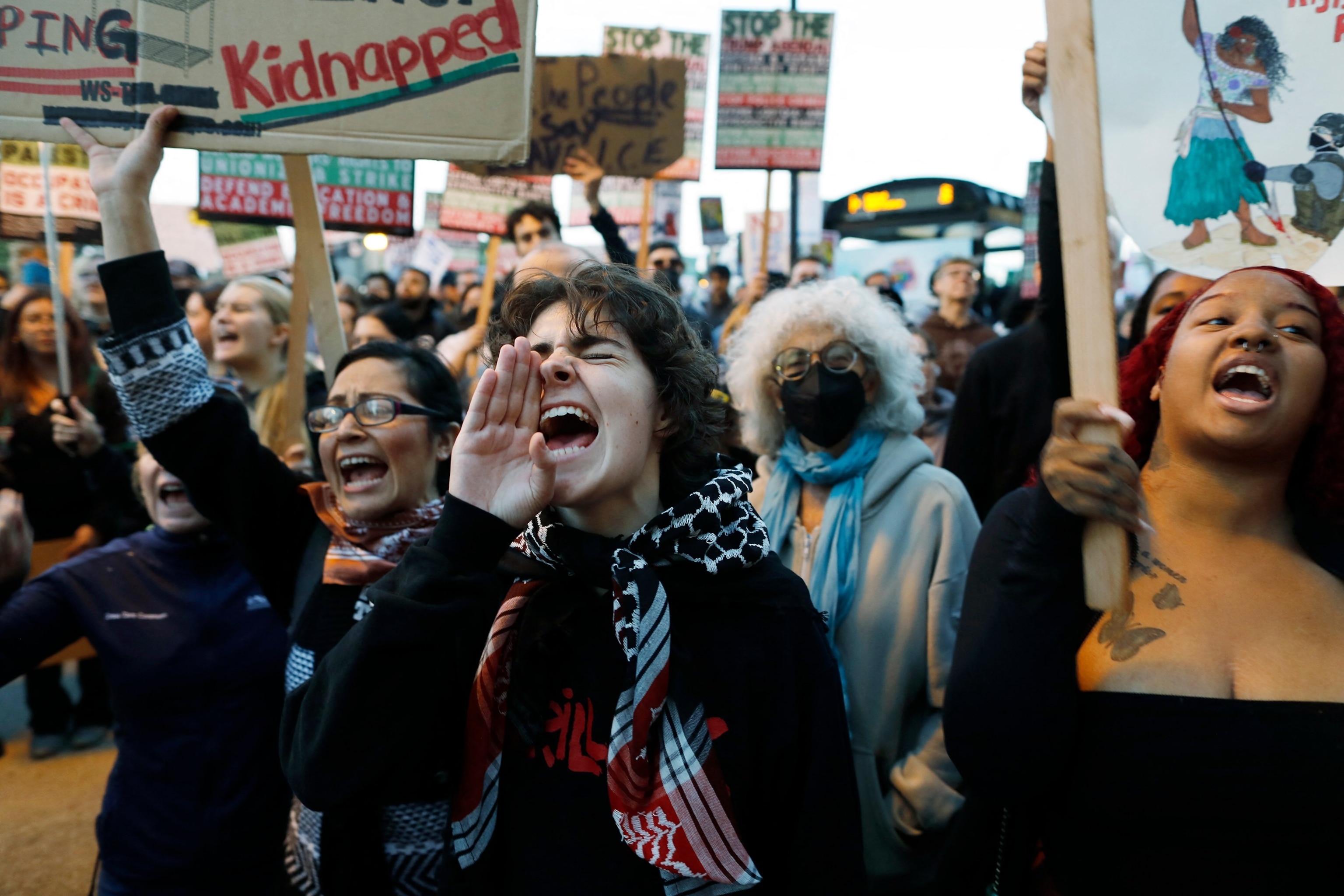

In two courthouses on opposite sides of the country, Donald Trump’s attempt to send troops into Democratic-led cities will face a critical legal test on Thursday.
The Ninth Circuit Court of Appeals is set to hold oral arguments at noon on whether to lift a lower court’s order blocking the deployment of troops into Portland, while a District Judge in Chicago has a hearing at the same time to consider stopping the deployment of the National Guard in Illinois.
The dueling hearings sets the stage for one of the most high-profile legal battles since President Trump took office, as local governments turn to the courts to stop what some judges have described as blurring of the line between military and civilian rule.
Ahead of the Chicago hearing, U.S. District Judge April Perry set a midnight deadline for the Trump administration to confirm when National Guard troops are set to arrive in Illinois, where they are set to be deployed and the scope of their activities.
Lawyers for the city of Chicago and state of Illinois have argued that the deployment of National Guardsmen will decrease public safety, exacerbate tensions in the city and infringe on the state’s sovereignty.
“By design, state and local governments operate closer to the people they serve, allowing them to tailor their activities to their communities’ needs. Federalism is not merely an administrative arrangement; it is a structural protection of liberty,” they wrote in a filing. “When the federal government assumes a role traditionally reserved to the States, it blurs the constitutional lines that define who is responsible for public safety.”

Meanwhile, as the Chicago hearing takes place, a three-judge panel on the Ninth Circuit Court of Appeals will hear arguments about whether to lift a lower court’s order blocking the deployment of 200 federalized members of the Oregon National Guard into Portland.
Earlier on Wednesday, the Ninth Circuit issued an administrative stay of that order to preserve the status quo as the lawsuit moves through the court.
Oregon argues that the deployment of troops is “part of a nationwide campaign to assimilate the military into civilian law enforcement” and is based on “inaccurate information” about the conditions in Portland.
“Defendants’ nearly limitless conception [the law] would give the President discretion to repeat this experiment in response to other ordinary, nonviolent acts of civil disobedience across our Nation. The public interest is served by a judicial order preserving the rule of law in the face of unprecedented and unlawful Executive action that threatens grave and irreparable damage to our State and the Nation,” lawyers for the state said in a recent filing.
A federal judge on Sunday expanded her order to bar any state’s National Guard from entering Portland after concluding that the Trump administration was attempting to work around her temporary restraining order by using troops from other states.
That second order has not been formally appealed yet, although the broader issue may arise during the hearing as the Trump administration challenges judicial limits on the president’s authority to deploy the National Guard.
“Congress did not impose these limits on the President's authority to federalize the Guard, nor did it authorize the federal courts to second-guess the President's judgment about when and where to call up the Guard to reinforce the regular forces in response to sustained and widespread violent resistance to federal law enforcement,” lawyers for the Trump administration wrote in a filing earlier this week.
In an amicus brief filed on Thursday, a group of former secretaries of the Army and Navy and retired four-star admirals and generals encouraged Judge Perry to express caution about the broader use of the National Guard in domestic operations.
“Domestic deployments that fail to adhere to [Posse Comitatus Act] threaten the Guard’s core national security and disaster relief missions; place deployed personnel in fraught situations for which they lack specific training, thus posing safety concerns for servicemembers and the public alike; and risk inappropriately politicizing the military, creating additional risks to recruitment, retention, morale, and cohesion of the force,” lawyers for the former military leaders wrote.
